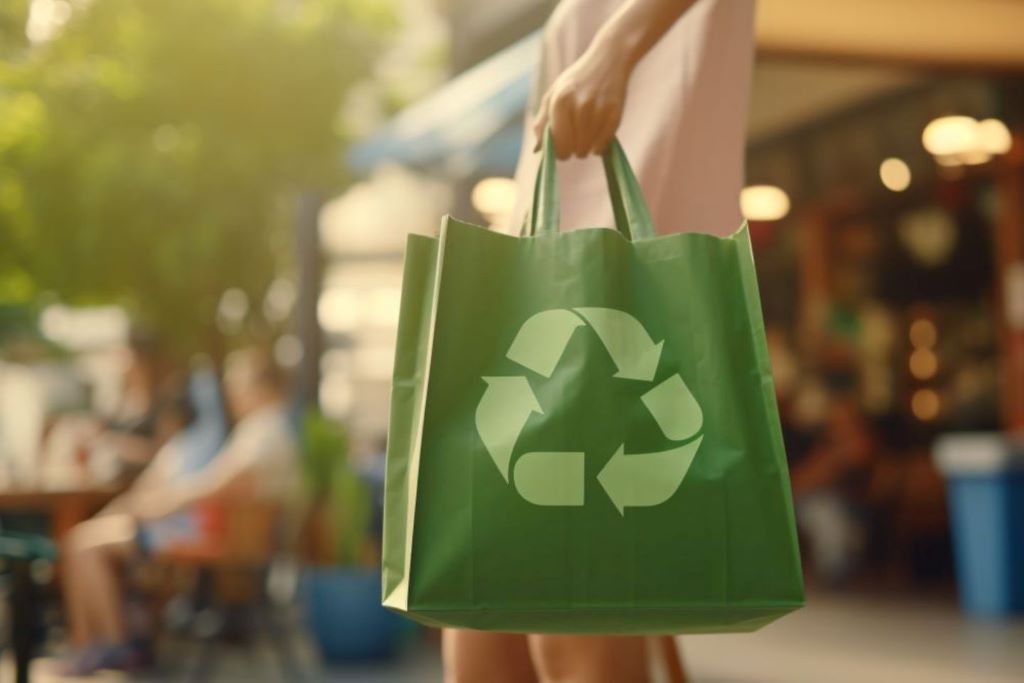
Sustainability as a Market Differentiator: How Eco-Friendly Practices Are Shaping Online Retail
Why Sustainability Matters in eCommerce
The rapid expansion of online retail has brought significant opportunities and pressing challenges, especially regarding sustainability. As internet shopping continues redefining how people buy goods, businesses are growing aware that eco-friendly action is not just about conscience—it is about a competitive edge. Companies that lead in adopting sustainable practices are forging stronger relationships with increasingly eco-aware shoppers. Ethical sourcing of materials, greener packaging, energy-efficient warehouses, and careful returns management are now scrutinized as shoppers seek to align their purchases with personal values. Industry studies affirm this upward trend; for instance, global eCommerce sales topped $5.7 trillion in 2022 and are projected to keep growing, magnifying retailers’ environmental impact.
While online shopping can make life more convenient and sometimes less carbon-intensive than physical retail, the cost-conscious consumer now wants both savings and sustainability. This is driving a surge in demand for discounts through digital platforms like Amazon coupons, allowing shoppers to save on everyday needs without compromising their commitment to planetary care. As the number of shoppers using coupon platforms rises, there is a unique opportunity for retailers to combine affordability with responsibility—proving that low prices and high environmental standards can go hand-in-hand. This dual priority isn’t just trending; it’s becoming a mainstay of what today’s online customer expects.
Consumer Demand for Green Options
As online retail evolves, data consistently shows consumers prioritize sustainability when shopping. Buyers are not just looking at product quality and price—they’re examining supply chains, material sourcing, packaging, and even how items are shipped. The willingness to pay more for sustainable goods has steadily increased, especially among Millennials and Gen Z shoppers. These demographics represent a significant market segment and push for corporate environmental, social, and ethical stewardship accountability.
Modern customers scrutinize everything from ethical labor practices to carbon offsets. They want visibility at all stages of the shopping process, from the origin of raw materials to how returns are handled and whether packaging will be recycled. Retailers who transparently communicate their sustainability efforts—through third-party certifications, detailed product descriptions, and plenty of public data—see elevated trust and greater loyalty. Sustainable choices are no longer the exception; they are fast becoming a vital expectation for any retailer wishing to remain relevant in an eco-conscious market.
Practical Eco-Friendly Initiatives
Leading retailers are adopting practical strategies to weave sustainability into their operations in large and small ways. From replacing single-use plastic with cardboard or compostable mailers to upgrading warehouse lighting with energy-efficient LEDs, each initiative gradually reduces the environmental footprint. Many online stores now feature product lines made from recycled or upcycled materials, showcasing innovation in design and supply chain management approaches.
- Switching to biodegradable or recycled packaging materials for all deliveries.
- Allowing customers to select bulk shipping to reduce both emissions and excess packaging waste.
- Sending digital receipts and paperwork instead of printed documentation to minimize paper use.
- Investing in green logistics, such as carbon-neutral or electric vehicle shipping fleets.
- Building relationships with suppliers who demonstrate strong environmental and labor standards.
Even small changes, like prompting customers to group orders or offering reusable packaging, can create significant positive change when scaled across millions of shoppers. Notably, customers have responded enthusiastically to brands making these shifts, rewarding them with increased loyalty and sharing their values through social advocacy and word of mouth.
Environmental Benefits of Online Shopping
Unlike traditional brick-and-mortar stores, online shopping offers several environmental advantages—especially when retailers optimize their logistics and embrace sustainable strategies. E-commerce companies have the power to reduce emissions by consolidating shipments and leveraging technology to create the most efficient delivery routes. This can mean fewer delivery vehicles on the road, more packages per trip, and dramatically reduced emissions compared to multiple consumer trips to physical shops.
Detailed research compiled by Statista highlights how operational changes—like bulk shipping, automated order processing, and minimal packaging—translate to measurable drops in greenhouse gases and resource use. Additionally, the absence of a storefront results in significant energy savings, from lighting and heating to water consumption. As technology evolves, expect even sharper gains as AI and data analytics further streamline the environmental impact of every shipment.
Challenges of Sustainable Retail
Even as the business case for sustainability grows, transitioning to greener operations can be complex. Switching to alternative packaging often comes with higher upfront costs, and building a sustainable supply chain may involve new partners, investment in certifications, and the risk of supply disruptions. In addition, efforts to use renewable energy, reduce waste, or electrify shipping fleets require time and capital.
Another persistent challenge is the issue of “greenwashing”—making claims about sustainability that are vague or misleading. Shoppers are increasingly adept at distinguishing between genuine commitments and empty marketing. For sustainable retail efforts to succeed, transparency has to be front and center. This means independent verification of claims, clear communication of progress toward eco-goals, and honest acknowledgment of areas still needing improvement. Only by taking these steps can brands convert eco-curious shoppers into lifelong advocates.
Examining Innovative Packaging Solutions
Packaging has emerged as a critical area where retailers can quickly demonstrate their commitment to sustainability. Innovations abound: compostable mailers made from plant materials, reusable bags and pouches, and even boxes designed to be easily recycled or reused by customers. Some online outlets offer deposit-refund systems, rewarding shoppers who return packaging for reuse while drastically reducing landfill contributions.
More advanced retailers invest in innovative packaging that uses fewer materials without compromising product safety. Some have formed alliances with suppliers pioneering post-consumer recycled content, while others are replacing petroleum-based inks and adhesives with water- or algae-based alternatives. Every improvement not only lessens environmental impact but also offers the consumer a visible, daily reminder that online shopping and environmental care can go hand in hand.
Policy and Compliance in Green Commerce
The regulatory landscape for sustainability in commerce is advancing quickly. Policymakers in many countries are drafting strict rules on packaging waste, emissions, product origin disclosures, and energy consumption. Retailers who familiarize themselves with these standards and move proactively to comply are better prepared for both legal changes and consumer scrutiny.
Eco-labels, third-party certifications, and voluntary compliance reporting frameworks are helpful for retailers who want to show transparent progress. Many publish regular sustainability reports, opening their operations for customer and watchdog groups’ review. The positive reputation gained by exceeding new requirements can distinguish leading brands from laggards in the perceptions of regulators and customers.
Future Trends in Sustainable eCommerce
The trajectory toward greener online retail continues to accelerate, shaped by technological innovation and heightened expectations from younger, digitally native shoppers. One significant trend will be the rise of AI and big data analytics, which help retailers optimize logistics, predict demand, minimize waste, and provide real-time carbon tracking for each order. Partnerships between eCommerce companies and environmental organizations are growing, supporting reforestation, clean energy, and other offset projects at scale.
Shortly, sustainability reporting may become just as routine as financial reporting, and customers may expect to see a product’s environmental impact at checkout just as they do its price. As value-driven commerce becomes standard, online shopping platforms that champion sustainability—while offering savings through options like digital coupons—will continue to stand out. Retailers who make eco-friendly practices integral to their brand will shape their industry and the future of consumer culture.


Average Rating